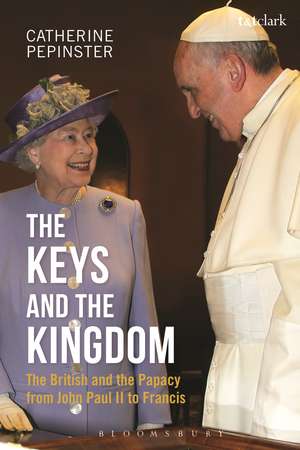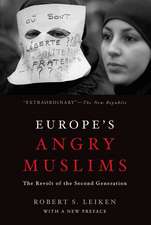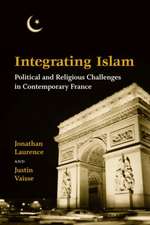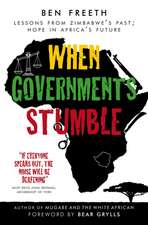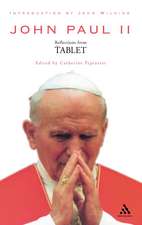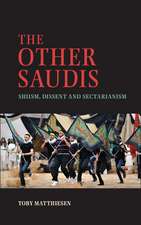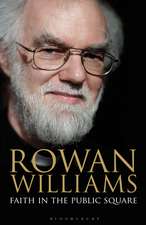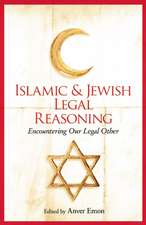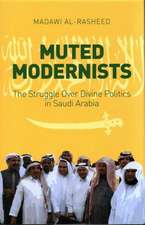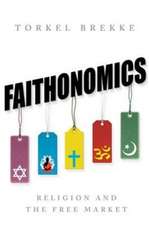The Keys and the Kingdom: The British and the Papacy from John Paul II to Francis
Autor Catherine Pepinsteren Limba Engleză Hardback – 15 noi 2017
| Toate formatele și edițiile | Preț | Express |
|---|---|---|
| Paperback (1) | 154.90 lei 3-5 săpt. | |
| Bloomsbury Publishing – 15 noi 2017 | 154.90 lei 3-5 săpt. | |
| Hardback (1) | 437.72 lei 6-8 săpt. | |
| Bloomsbury Publishing – 15 noi 2017 | 437.72 lei 6-8 săpt. |
Preț: 437.72 lei
Preț vechi: 538.62 lei
-19% Nou
Puncte Express: 657
Preț estimativ în valută:
83.80€ • 87.23$ • 68.98£
83.80€ • 87.23$ • 68.98£
Carte tipărită la comandă
Livrare economică 31 ianuarie-14 februarie 25
Preluare comenzi: 021 569.72.76
Specificații
ISBN-13: 9780567666307
ISBN-10: 0567666301
Pagini: 264
Ilustrații: 16 colour illus
Dimensiuni: 138 x 216 x 26 mm
Greutate: 0.55 kg
Editura: Bloomsbury Publishing
Colecția T&T Clark
Locul publicării:London, United Kingdom
ISBN-10: 0567666301
Pagini: 264
Ilustrații: 16 colour illus
Dimensiuni: 138 x 216 x 26 mm
Greutate: 0.55 kg
Editura: Bloomsbury Publishing
Colecția T&T Clark
Locul publicării:London, United Kingdom
Caracteristici
Features exclusive interviews with Cardinal Nichols, Cardinal Murphy O'Connor, Lord Patten of Barnes, British ambassadors to Italy and the Holy See, Cherie Blair, Baroness Kennedy, and other leading figures
Notă biografică
Catherine Pepinster is the former editor of The Tablet, Britain's most popular Catholic weekly. She has been Executive Editor of the Independent on Sunday and is a regular contributor to the national press and Radio 4. Pepinster was a visiting fellow at St Benet's Hall, University of Oxford, UK.
Cuprins
PrefaceAcknowledgements IntroductionBritain and Rome: The Entirely Trusted Stealth Minority Relations Restored: Diplomacy Part OneFrom Farce to a Golden Age: Diplomacy Part Two Faith, Reason and Compassion: Benedict, the British, and FrancisThe Grit in the Oyster: Church vs StateThe Papacy and Northern IrelandEcumenism: Every Picture Tells a StoryThe British at the Heart of RomeThe Pope as a Modern Leader: From John Paul II to Pope FrancisIndexes
Recenzii
[A] scholarly but always readable book. 5*
Genuinely illuminating.
[Catherine Pepinster] has produced a worthy account of this remarkable shift for Bloomsbury's academic arm ... More journalistic than pedagogic, though none the worse for that.
Pepinster's chosen method gives her book a directness that makes for engaged reading. Her excellent account is especially interesting on the political and diplomatic aspects. I wish that it were longer.
Pepinster's vast experience as a journalist is displayed brilliantly as she uncovers the intriguing ways that Catholics have influenced public life in the UK and the mutual reciprocity between the papacy and the Crown over the past four decades . Readers interested in the history of UK-Vatican political relations and foreign policy will enjoy this very accessible and informative book.
This is a fluent, thoughtful and meticulous account of where the Catholic Church touches home politics, foreign policy and Vatican diplomacy in recent UK history. Catherine Pepinster draws on a rich seam of written and oral archives which she has mined with skill and verve.
A highly informed and eminently readable insider account of the complex relationship between Britain and the papacy over the last thirty years. Essential reading for those seeking to understand modern Britain's changing religious landscape, and especially valuable in its survey case studies of post-conciliar Anglican-Catholic ecumenism, the Troubles and the papal visits of John Paul II and Benedict XVI.
An insightful study of how the personality of the pope - from the authoritarian charisma of John Paul II, through the scholarly rationalism of Benedict XVI to the reforming pastoral openness of Pope Francis - has influenced relations between the British government and the Catholic Church. It is studded with disclosures on the ambiguous role of the church in the Irish peace process and the resurgence of Scottish nationalism. And it reveals that Rome sees the church in the UK as a laboratory in which to test out how the Church globally can operate in an increasingly secular society.
Pepinster has written a compelling account of the interplay between the papacy and the UK. In doing so she brilliantly makes sense of the complex changing role of Catholicism in modern Britain, and the way British politicians have dealt with the Vatican. There are fresh insights on every page.
Genuinely illuminating.
[Catherine Pepinster] has produced a worthy account of this remarkable shift for Bloomsbury's academic arm ... More journalistic than pedagogic, though none the worse for that.
Pepinster's chosen method gives her book a directness that makes for engaged reading. Her excellent account is especially interesting on the political and diplomatic aspects. I wish that it were longer.
Pepinster's vast experience as a journalist is displayed brilliantly as she uncovers the intriguing ways that Catholics have influenced public life in the UK and the mutual reciprocity between the papacy and the Crown over the past four decades . Readers interested in the history of UK-Vatican political relations and foreign policy will enjoy this very accessible and informative book.
This is a fluent, thoughtful and meticulous account of where the Catholic Church touches home politics, foreign policy and Vatican diplomacy in recent UK history. Catherine Pepinster draws on a rich seam of written and oral archives which she has mined with skill and verve.
A highly informed and eminently readable insider account of the complex relationship between Britain and the papacy over the last thirty years. Essential reading for those seeking to understand modern Britain's changing religious landscape, and especially valuable in its survey case studies of post-conciliar Anglican-Catholic ecumenism, the Troubles and the papal visits of John Paul II and Benedict XVI.
An insightful study of how the personality of the pope - from the authoritarian charisma of John Paul II, through the scholarly rationalism of Benedict XVI to the reforming pastoral openness of Pope Francis - has influenced relations between the British government and the Catholic Church. It is studded with disclosures on the ambiguous role of the church in the Irish peace process and the resurgence of Scottish nationalism. And it reveals that Rome sees the church in the UK as a laboratory in which to test out how the Church globally can operate in an increasingly secular society.
Pepinster has written a compelling account of the interplay between the papacy and the UK. In doing so she brilliantly makes sense of the complex changing role of Catholicism in modern Britain, and the way British politicians have dealt with the Vatican. There are fresh insights on every page.
